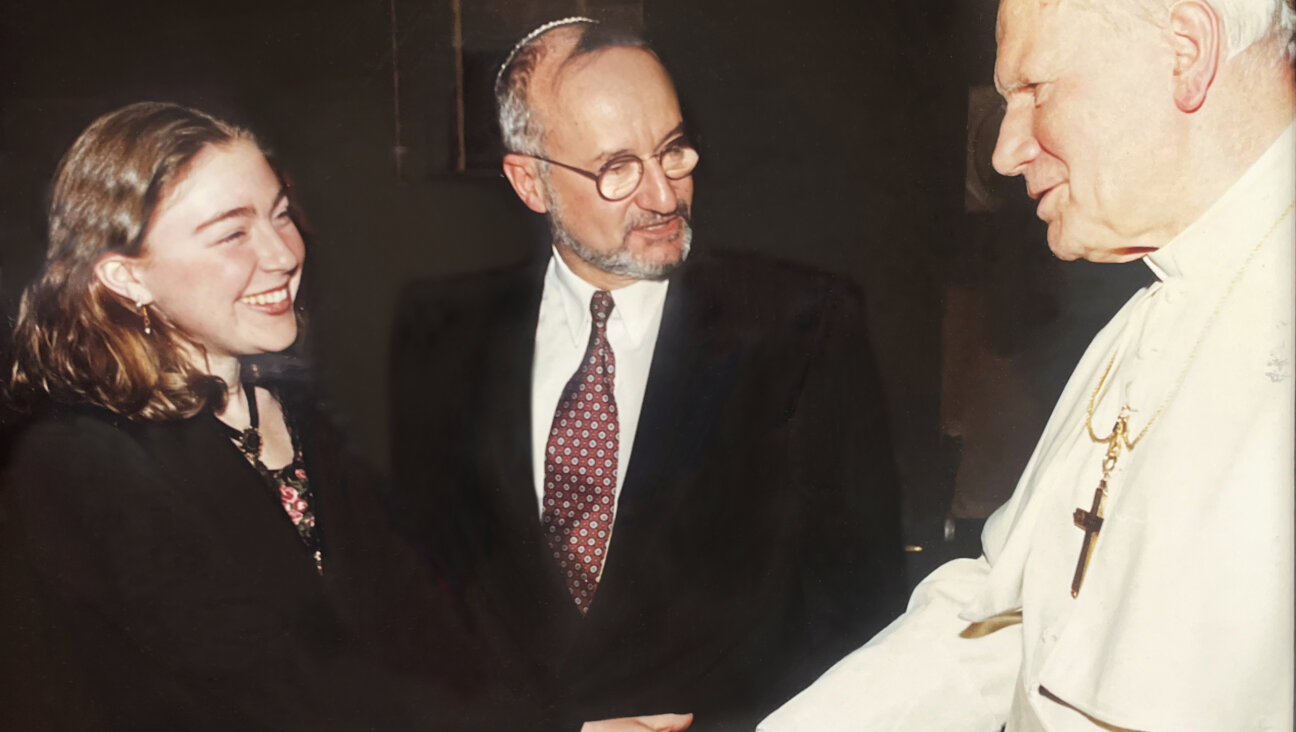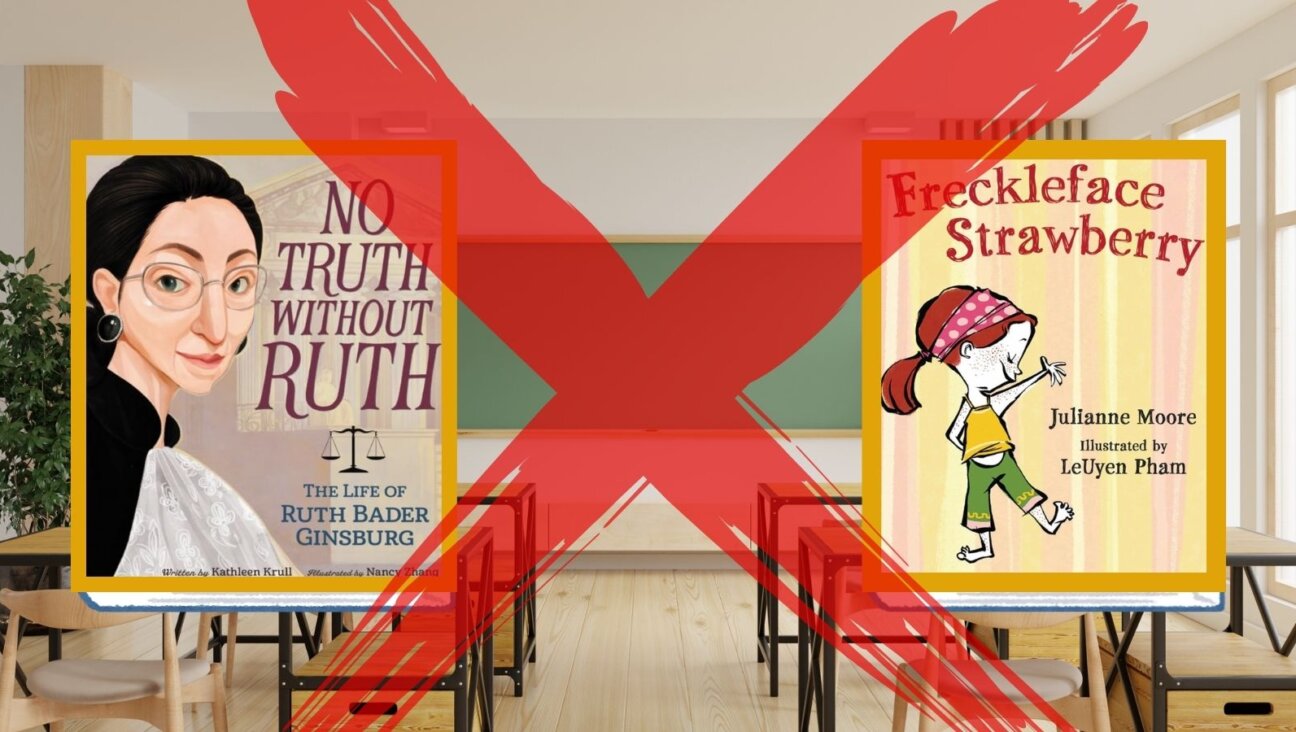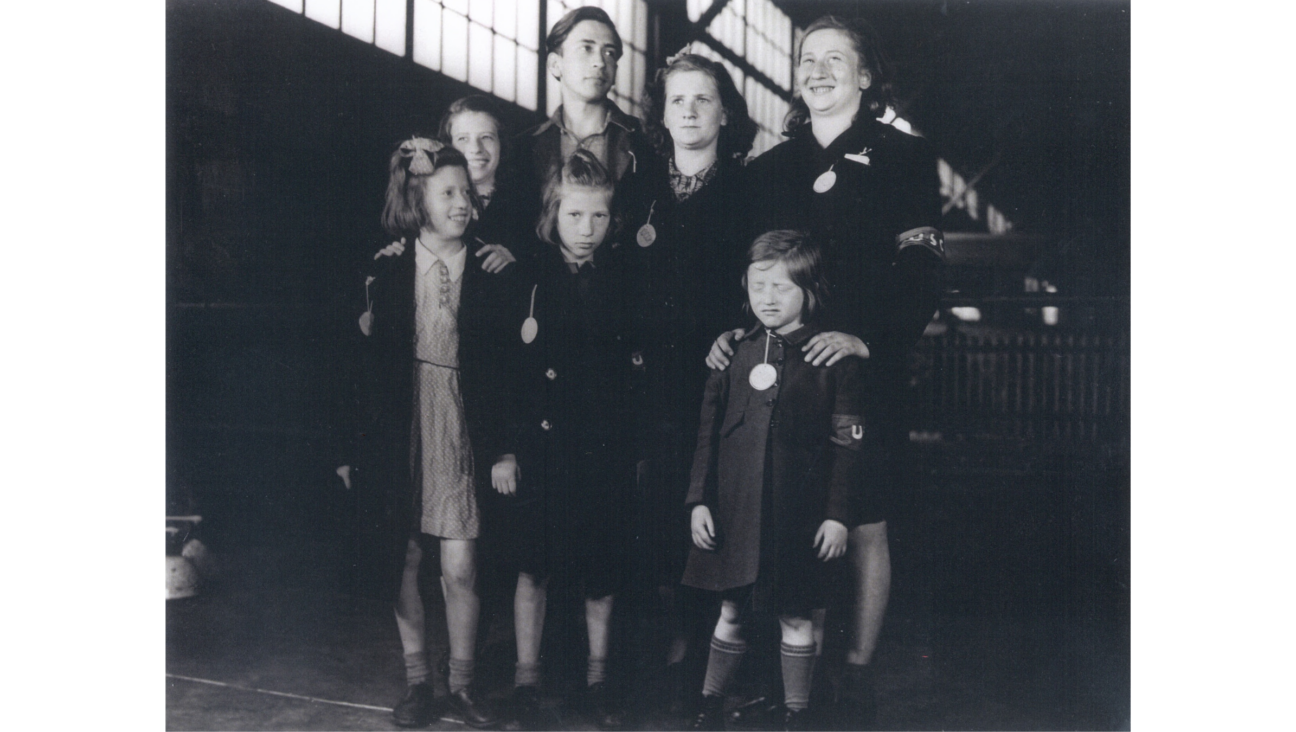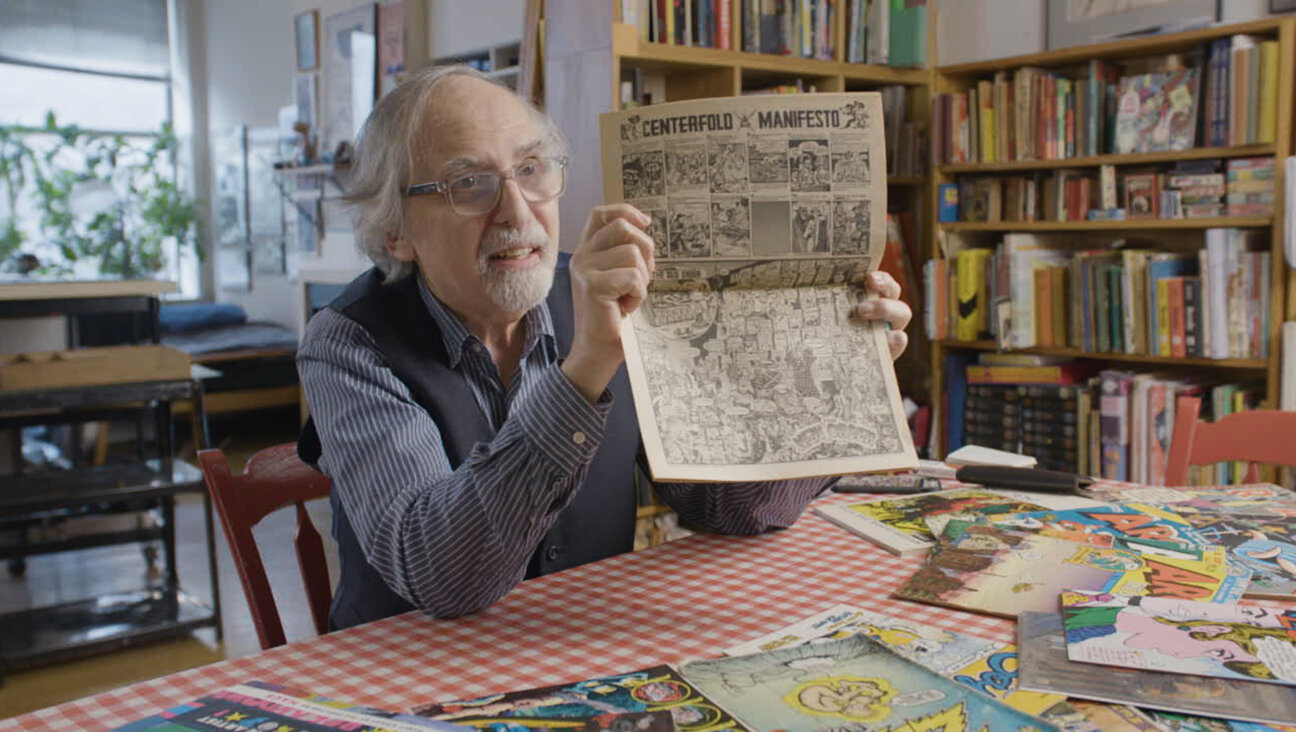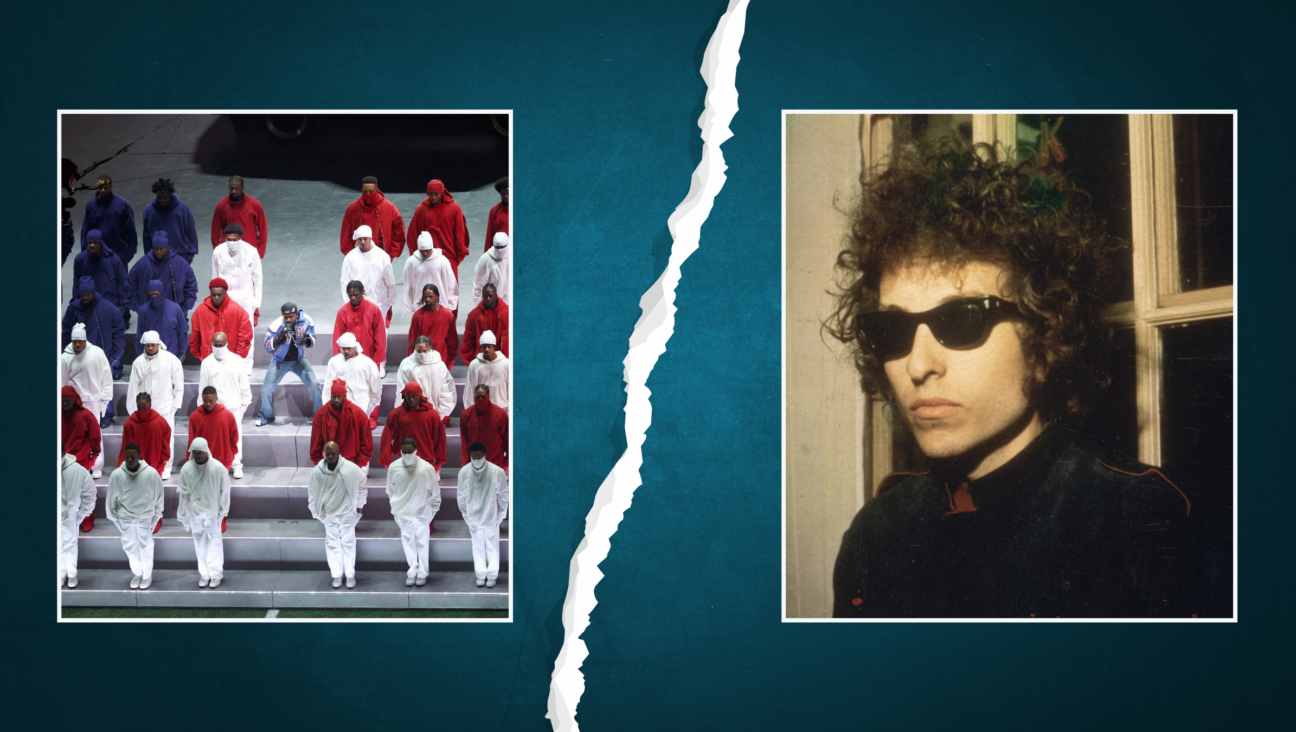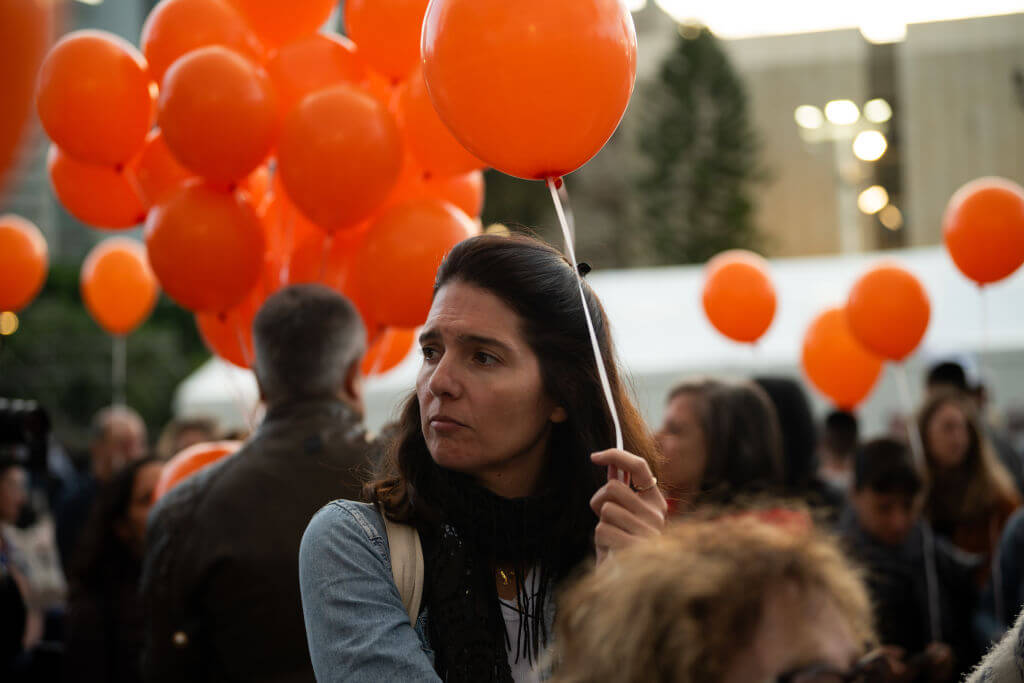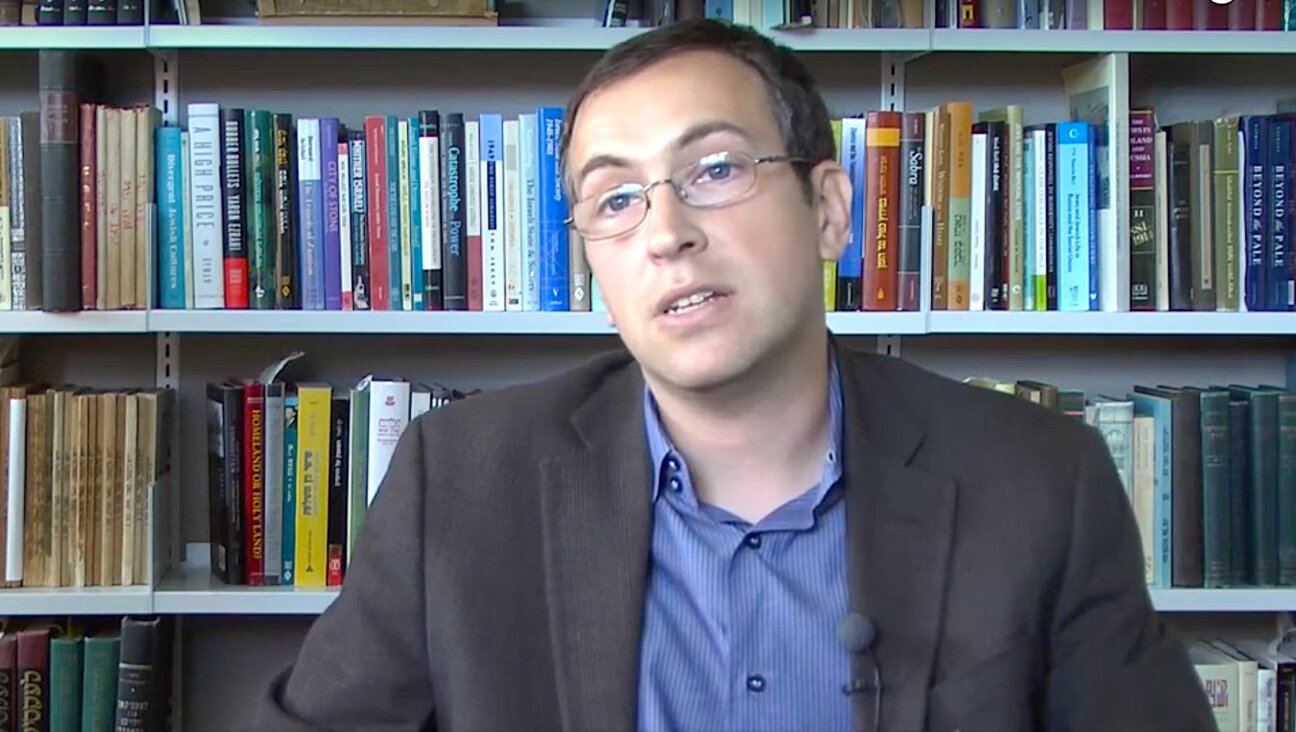Portrait of the Artist As a Nice Jewish Boy
The Book of Martyrdom and Artifice: First Journals and Poems 1937-1952
By Allen Ginsberg
Edited by Juanita Lieberman-Plimpton and Bill Morgan
Da Capo Press, 416 pages, $27.50.
Somewhere along the line, Allen Ginsberg changed American poetry — even American culture. Conventional wisdom says it happened the night of October 7, 1955, when Ginsberg performed his incantatory masterpiece, “Howl,” in the City Lights bookstore. Certainly, “Howl” was a turning point; it was the birth of a new American poetry concerned with free expression, sexual liberation and other values that, a decade later, would form the bedrock of the counterculture.
But Ginsberg didn’t turn into the author of “Howl” on that single night in San Francisco, and the new collection of his earliest journals and poems, “The Book of Martyrdom and Artifice,” is a fascinating account of how a nice Jewish boy from Paterson, N.J., grew up to be the brilliant, erratic, erotic bard of the Beat Generation.
What’s perhaps most fascinating about “The Book of Martyrdom and Artifice” is how ordinary Ginsberg is at first. In high school, he runs for class treasurer (and loses), complains about his bullying older brother, and pontificates about congressional elections and public policy. In short, he is the Jewish Every-teen, a middle-class boy in New Jersey indistinguishable from thousands of others like him (and, to be honest, quite like this middle-class boy who grew up 30 years later). It’s easy to imagine him as Portnoy.
As Ginsberg enters Columbia University and begins to write in earnest, his early poems are formal, even stiff. Significantly, the first full poems included in the book are those Ginsberg wrote, at age 18, about David Kammerer, a friend who had made a sexual advance on Lucien Carr, an enormous influence on all the Beats (and the subject of several “character analyses” in Ginsberg’s journals). In response, Carr killed Kammerer with his pocket knife — a terrible trauma for Ginsberg, who at the time was just starting to be open about his own homosexuality. But at 18, Ginsberg’s poetic language is archaic: “For he is dead/and now will heal/The wound which he/alone could feel.”
It’s a thrill to read of Ginsberg’s first meetings with William Burroughs, Jack Kerouac and Neal Cassady, and with the lesser-known but, the journals reveal, even more influential Carr and Herbert Huncke. Yet the way Ginsberg depicts these encounters, it’s clear that he doesn’t quite fit in with the cool “hipster” crowd, with their violence and drug use and cavorting with criminals. “All well and good to act hip when one is, and non-compulsive and all wise when one is, but I am not, and the act is a sham,” Ginsberg says at one point.
It’s a bit of a cliché to talk about the Jew-as-outsider, but Ginsberg was both very Jewish, and, whether coincidentally or consequently, very much an outsider. In a crowd full of goyim, Ginsberg’s Jewishness is remarked upon several times. (Curiously, Ginsberg rarely reflects on these remarks in his diary, scrupulously recording them but seldom commenting on what they mean to him: It would only be in later years that Ginsberg would write such poems as “Yiddishe Kopf,” with lines like “I’m Jewish because love my family matzoh ball soup.”) And there is something somehow inauthentic about his Beat status in these early years. He’s like a white boy who listens to hip hop: He’s got the moves, and the rhetoric, but it feels like a good imitation, not quite the genuine article.
This, of course, is what some critics have said about Jewish art for years: that it’s an imitation of other forms, rather than sui generis genius. There’s something antisemitic about this claim, but also something true, if we look honestly at such exogenous sources of “Jewish” cultural forms as klezmer and gefilte fish, and at poetical forms like the *piyyut. Indeed, perhaps the essence of Jewish genius lies precisely in its adaptability. Portable religion in hand, the Jewish artist takes, reforms, synthesizes.
And yet — think of Bob Dylan here, or Marc Chagall — there is something different between the Jewish appropriator and the “authentic” folk material he or she is appropriating. Perhaps, and this is certainly true of Ginsberg’s early work, the element of reflexivity itself is what is new. Close to, but at something of a remove from, the real criminals and madmen of the Beat Generation, Ginsberg is able to report on them, comment on them and provide an element of reflective analysis that the “real” Beats, like Carr and Huncke, cannot. After all, Ginsberg may say that “the best minds of my generation [were] destroyed by madness,” but Ginsberg’s is not one of them (although “The Book of Martyrdom and Artifice” makes clear not only the depth of his mother’s schizophrenia but also Ginsberg’s own multiple institutionalizations for anxiety and psychiatric disorders that today would surely be treated with medication). He is close enough to witness, removed enough to reflect.
I find something deeply appealing about Ginsberg’s almost-but-not-quite passing. Kerouac and Cassady just are; Ginsberg has to figure it out. When I was at Columbia, I, too, was attracted to the cool crowd, but never quite made it in. I, too, wrote brooding poems about the impossibility of love, until I realized that I was not star-crossed and lovelorn, but repressed. I even joined the same literary society as Ginsberg (in 1946, the poet wrote that he “laughed so hard at a Philolexian meeting tonite that I think I strained my back”).
And yet, to state the obvious, Allen Ginsberg became Allen Ginsberg, and I didn’t. Why? That’s the mystery of “The Book of Martyrdom and Artifice” — not Ginsberg’s ordinariness, but how his genius seemed to spring from it. Plenty of confused, nervous kids take walks on the wild side and write lyrical poetry. What made Ginsberg different?
Well, there is the talent, for one. Ginsberg knows his stuff; while his later work may seem informal, these early journals, with their reading lists, vocabulary lists, and numerous literary and philosophical musings, make clear that his was not an unstudied art. He knew the rules, and knew how to break them. But then, plenty of people know the rules.
Maybe, then, it’s Ginsberg’s courage, his lust for life. Certainly Ginsberg’s drug-fueled adventures with the reckless Burroughs and the criminal Huncke are more extreme than anything I experienced at Columbia, resulting in arrests, expulsions and a whole lot of wild times. Yet plenty of people cavort with criminals; few go on to become the bards of a generation.
Who knows? Maybe it’s that Ginsberg really was mad; after all, it was the 1948 auditory hallucination of William Blake (he called it a “mystical experience”) that, Ginsberg says, inspired him to become a poet for real. And the Ginsberg of “The Book of Martyrdom and Artifice” is a deeply confused kid: twice institutionalized (the journals are painfully revealing here), and prone to unrequited crushes and waves of self-doubt. But, once again, lots of people are crazy, and half of them are mystics. Why does this one set loose the meter of 20th-century American poetry, capture the vitality of postwar youth culture and become a founding father of at least three major American social movements?
Perhaps it’s all of the above plus extra helpings of both talent and marginality. A gay Jew, Ginsberg did not fit into American society but was close enough to be privileged and educated, corresponding with Auden and Trilling. And conversely, as a middle-class Jewish intellectual, Ginsberg was never a “natural” like Cassady, a junkie like Burroughs, or a criminal like Huncke or Carr; yet he was thirsty enough, and repressed enough, to know the visceral thrill of raw, unfettered life — perhaps even more than those for whom it came naturally.
When we finally leave Ginsberg, after 385 pages of his increasingly intimate journals (though the caginess of the early entries does give way to more honesty, especially about sex, the book never reaches the level of self-exposure of Ginsberg’s poems from the 1960s and ’70s), he seems to be at a crossroads. “What job, what love do I want?” Ginsberg asks just after his 26th birthday. He’s at a perilous moment, and in fact, Ginsberg did try the “straight” life, professionally and sexually, working at an advertising agency and attempting relationships with a series of women. In August 1952, he wrote what he thought would be a reminiscence:
As an adolescent I wanted to go into the great world of men and affairs and dreamed of being a senator or representative or an ambassador. Having lost a high school election to my humiliation, I turned to my own life. I dreamed of love from a blond man and while that dream was never realized… I found love from men I never dreamed existed. Satiated in knowledge of my man lust, I turned to women finally. I wanted to write poetry, but doing so found at last a stony line and unpoetic words to deliver me to the title of poetry which I practice in coldness and design.
This narrative of growing up and becoming respectable would not hold. And that’s the crux of it: For some people, the experimentation that the Beats pioneered is only a phase; but for those of us who couldn’t fit in even if we tried, there is no choice but to find one’s own path. As Ginsberg wrote in a poem from the same year:
I look like someone else
I don’t like in the mirror
a floating city heel,
middleclass con artist…
heavy eyebrowed, sadistic,
too mental and lonely.
The straight and narrow was not to be his life. Only three years later, Ginsberg would change the world, and set free all of us who dare to defy Moloch, at the price of comfort and the approval of our families. At the time, the adventures recorded in “The Book of Martyrdom and Artifice” may have seemed like just a walk on the wild side, or the meanderings of a confused kid trying to find his way. In fact, this intellectual, Jewish, closeted and nervous Columbia student would soon change the world. Who knew?
Only one person, Ginsberg himself. At age 14, Ginsberg already had predicted: “I’ll be a genius of some kind or other, probably in literature…. Either I’m a genius, I’m egocentric, or I’m slightly schizophrenic.” Or all of the above, and more.
Jay Michaelson’s first book of poetry, “Another Word for Sky,” will be published next month by Lethe Press.
A message from our Publisher & CEO Rachel Fishman Feddersen

I hope you appreciated this article. Before you go, I’d like to ask you to please support the Forward’s award-winning, nonprofit journalism so that we can be prepared for whatever news 2025 brings.
At a time when other newsrooms are closing or cutting back, the Forward has removed its paywall and invested additional resources to report on the ground from Israel and around the U.S. on the impact of the war, rising antisemitism and polarized discourse.
Readers like you make it all possible. Support our work by becoming a Forward Member and connect with our journalism and your community.
— Rachel Fishman Feddersen, Publisher and CEO








